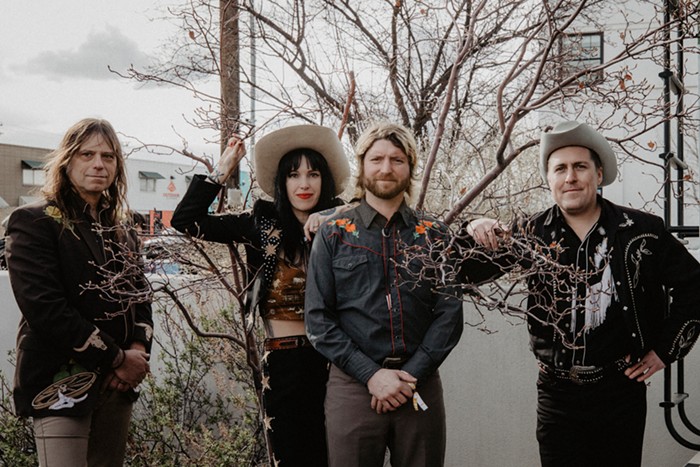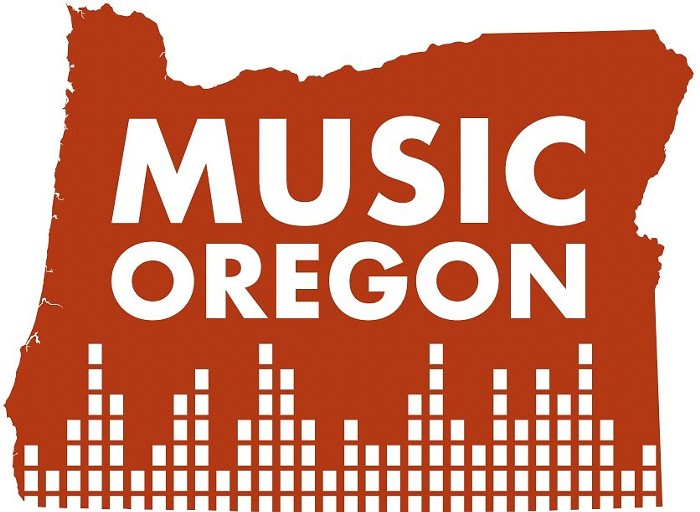IT'S MINUS 12 DEGREES outside, but the heat inside the bar is almost unbearable. People shed their jackets and gloves in favor of the dance floor, trading icy limbs for perspiring ones. Then, it's a pleasant 60 degrees and the sun is shining like midday, though the clock clearly reads 10:30 pm.
Welcome to Alaska.
Regardless of the season, the feeling at live shows here is an electric current running through the crowd. There's something different, a sense of connection that's not always found in other places—a friendly hunger for something new and interesting.
Alaska is the perfect place for bands looking for an experience outside of the usual tour circuit. "They have to come up here with a sense of adventure," says singer/songwriter Evan Phillips. Phillips is one of the co-founders of the Monolith Agency, a small booking firm located in Anchorage. Phillips, alongside co-founders Martin Severin and Marc Bourdon, hopes to build a bridge between musicians in the lower 48 and Alaska. Portland is a key part of that exchange.
Alameda, Quiet Life, Lewi Longmire, Hillstomp, and the Ezza Rose Band are just a few of the Portland artists that have already made the approximately 2,500-mile trip up north. Although the distance and expense might make the trip sound like a pipedream, Monolith's aim is to make travel, recording, and touring an affordable and exciting experience for up-and-coming artists. Even in the agency's nascent stages, the three cohorts work to make the experience worthwhile. "It seemed unrealistic at first, but Evan pulled it off," says Sean Spellman of the band Quiet Life, one of the first bands to work with Monolith. "The next thing I knew we were chasing moose and watching the Northern Lights after the show. We went up there because we wanted to get dirty, to stay up late, and to just play music."
Some bands choose to tour in summer and others winter, and each experience is tailored to fit their preferences and goals. "It's not like we're booking the same tour every time," Phillips says. "Every band's tour is different. It goes band-to-band, artist-to-artist. We just try to use our judgment and get people the best gigs for them." Shows can vary from wild, larger bar gigs to quiet, intimate house shows, and often take bands off the beaten path. Tour locations include small towns like Talkeetna, Seward, and even remote destinations like Denali National Park. The shows themselves are, of course, only one facet of the journey.
Most bands choose to spend several days in the locations they play, allowing them to get a better sense of the community where they're performing. This offers a nice change from a tour's typically rigorous pace, says singer/songwriter Ezza Rose: "As a band, it was really fun to connect and spend all of that time together. You'd spend a few days in a town, and it doesn't take long for people to get word that the band's around. People will find you in the coffee shop, ask you about your music, and ask you about how it's going."
"Everywhere we went, folks were really open and talkative," says Lewi Longmire. "Maybe it's the isolation of long winters indoors or something, but everywhere we went, folks were super friendly and wanting to interact. Lots of great stories got passed around."
The Monolith Agency also hopes to offer visiting bands something more in the coming months, including a professional recording studio and a series of live video sessions of touring artists. Studio 2200, recently built by Severin, offers a library of instruments and professional gear to bands who want to record in the Last Frontier. It's a space designed to allow bands to feel at home even while being far removed from their everyday lives. "To me it was a goal to make something that was very inviting and comfortable," Severin says.
Alaska is gradually becoming the next destination for bands, especially through word-of-mouth recommendations. Stirling Myles, of the Portland band Alameda, likens the tour experience to a secret world. "It's like this thing—here's the world that I want to invite you to—and you pass it on to other bands. It's not just a tour route, it's more than that," says Myles. "Half of the places you're playing aren't even true venues. It's just about navigating through this different culture. It's more about being accepted into the community as a whole."



















